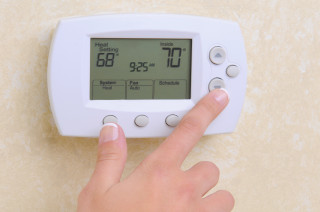Sleep is a necessity and long term sleep problems can impact your health physically, mentally and emotionally. This includes your weight, your blood pressure, your immune system, your brain and your hormones.
Have you ever said to yourself, “I can’t sleep for eight hours a night, I’ve got too much to do?”
Sleep is important, but just like eating healthy foods and exercising, it can be difficult to fit into our busy schedules. Too little sleep doesn’t just make you feel drowsy. Sleep deprivation impacts memory, movement, cell growth and repair, and it impairs your judgment, attention span, concentration and problem solving abilities.
Everyone varies in the exact amount of sleep they need. And therefore, there isn’t a magic number to how many hours you should get per night. You will know when you’ve gotten a good night’s sleep if you can wake up easily and feel rested. Try to go to bed at a time that will allow you to get seven to nine hours of sleep. Let yourself wake up naturally. Do this for several days to determine how much sleep your body needs.
Sleep routine
You need to wind down from your busy day and prepare your brain and body for sleep. Rather than turning off the TV and going straight to bed, consider allowing time to transition your mind and body toward sleep.
You will spend a third of your life in your bedroom. Make sure that it is outfitted as a clutter free, sleep oasis.
A warm bath including aromatherapy can be a beneficial relaxation technique.Or try stretching, yoga or deep breathing exercises before bed. Also, keeping your electronics out of your bedroom can really help your sleep routine.
Another tactic is to avoid the late night munchies. They can sabotage a good night’s sleep, not to mention your diet goals.
Five bedroom musts
- Bed – Find the style of mattress and pillow that provides the support and comfort you need.
- Linens – Cotton or linen sheets with a lower thread count allow more airflow which keeps you cooler. Weighted blankets may also be a solution for you if you have anxiety or insomnia.
- Light – Keep your room dark when sleeping. Light will inhibit your brain’s production of melatonin.
- Tempe
 rature – Adjust thermostat and sleep attire for optimal comfort. The typical recommendation is between 65 and 72 degrees. According to Craig Heller, PhD, professor of biology at Stanford University, your internal temperature goes down when you sleep so a cool room can help your body regulate and achieve its comfort level.
rature – Adjust thermostat and sleep attire for optimal comfort. The typical recommendation is between 65 and 72 degrees. According to Craig Heller, PhD, professor of biology at Stanford University, your internal temperature goes down when you sleep so a cool room can help your body regulate and achieve its comfort level.
- Sound – Use a sound machine, fan or ear plugs if noises disturb your sleep.
Six foods to avoid
- Caffeine – The effects of caffeine can last four to six hours. This includes chocolate, tea, coffee and soda.
- Alcohol – It may interfere with your sleep and can increase your risk of snoring.
- Sugar –Excessive sugar during the day will affect your brain which affects your sleep.
- MSG – Consuming this stimulant can result in many health issues including migraines and insomnia.
- Fat – Foods that are fried or high in fat take longer for your body to digest.
- Spicy foods – These can cause indigestion and lead to trouble falling asleep and staying asleep.
You will spend a third of your life in your bedroom. Make sure that it is outfitted as a clutter free, sleep oasis. You can improve your sleep by getting regular exercise, eating healthy and getting exposure to sunlight. What change can you make today for a better day tomorrow?
You may want to consult your physician or a sleep specialist if your sleep difficulties don’t improve.


